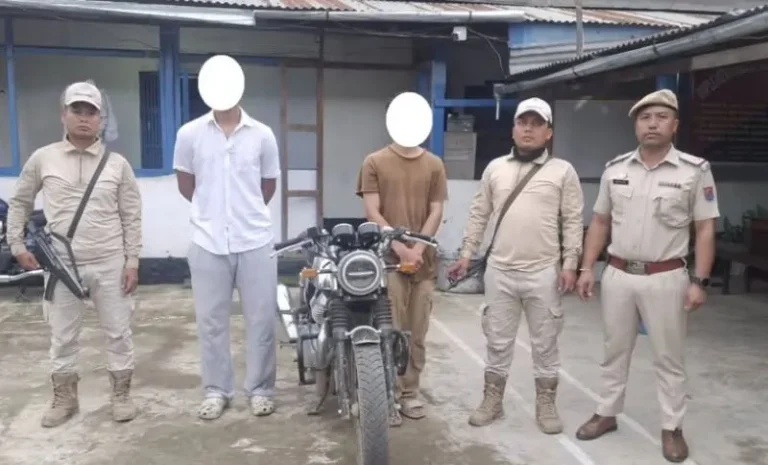Manipur CM’s Apology Sparks Controversy: Calls for Resignation and Accountability
Summary
Manipur Chief Minister N. Biren Singh’s recent apology for the ongoing crisis in the state has ignited a storm of reactions from political leaders and the public. While Singh expressed regret over the violence and unrest, Congress leader Sandeep Dikshit has called for his resignation, demanding greater accountability. This incident underscores the complex political dynamics in the state, highlighting the urgent need for a sustainable resolution to the crisis.
Introduction: The Apology That Divided Public Opinion
In a surprising move, Manipur Chief Minister N. Biren Singh issued a public apology, expressing deep regret for the violence and suffering faced by the people of Manipur over the past year. However, this apology has sparked intense debate across political circles, with demands for accountability and even resignation. So, what exactly triggered this controversy, and where does the state stand in its journey toward peace?
Let’s dive deeper into this story to understand the broader implications.
The Apology: A Gesture or a Political Move?
On January 2, 2025, Chief Minister N. Biren Singh addressed the citizens of Manipur through a heartfelt apology. “I take full responsibility for the situation,” he said, offering an emotional acknowledgment of the suffering inflicted on the people. However, his words were met with skepticism from political opponents who questioned whether this was a genuine act of remorse or a mere political strategy to deflect criticism.
Sandeep Dikshit’s Call for Resignation
Congress leader Sandeep Dikshit was quick to criticize Singh’s apology, stating that it was insufficient and called for his immediate resignation. According to Dikshit, Singh’s failure to take tangible steps toward resolving the crisis warrants his stepping down from the Chief Minister’s post.
This polarizing demand reflects a deeper discontent among political opponents and citizens alike, who believe that mere apologies will not suffice to address the deep-rooted issues that continue to plague the state.
Unpacking the Crisis: Roots of Manipur’s Unrest
Manipur has been embroiled in unrest for months, with clashes between different ethnic communities fueling tensions. The core of the issue revolves around the Meitei community’s demand for Scheduled Tribe status, which has been met with strong opposition from tribal groups like the Kukis.
This longstanding conflict has resulted in violent protests, displacement of thousands, and a strained law-and-order situation. Despite numerous attempts at dialogue, the unrest persists, creating a fragile environment where political actions often escalate rather than resolve issues.
Apology as a First Step
Chief Minister Singh’s apology is a significant first step in acknowledging the crisis. Yet, many argue that it must be followed by concrete actions to rebuild trust and ensure that justice is served. Without effective policy measures and the involvement of all affected communities, the unrest will continue to fester.
Political Reactions and Public Sentiment
Mixed Reactions
While Singh’s apology sought to portray empathy, it has failed to satisfy everyone. Leaders like Sandeep Dikshit are not alone in questioning the sincerity of this act. Several other political figures and citizens believe that Singh should not only apologize but also show leadership in resolving the issues at hand.
Need for Accountability
Accountability remains a critical factor. Politicians, especially in crisis situations, are expected to deliver solutions rather than just apologies. As the violence drags on, citizens yearn for leaders who can provide a clear roadmap toward peace and development.
Why Resignation Might Be Viewed as a Solution
Dikshit’s call for Singh’s resignation may seem harsh, but it stems from a larger sentiment among critics who feel that leadership under Singh has not resulted in any substantive progress. Resigning, according to them, could serve as a step toward new leadership that could potentially bring fresh perspectives and approach to the ongoing conflict.
This raises an important question—when does responsibility shift from mere governance to complete accountability for the well-being of the citizens?
The Path Forward: Rebuilding Trust and Promoting Peace
1. Inclusive Dialogue
For Manipur to move beyond its current crisis, it’s essential that all communities are included in discussions about peace. Effective dialogue ensures that grievances are addressed and prevents any one group from feeling marginalized.
2. Strengthening Governance
A key step toward resolving the crisis is to strengthen governance structures. Transparent administration, free from corruption and bias, will build trust among citizens and create a more stable environment for development.
3. Comprehensive Development Programs
Beyond conflict resolution, long-term peace can only be achieved through economic development and social welfare. Ensuring that all communities share in the benefits of growth is essential to sustainable peace.
FAQs
1. Why did Manipur Chief Minister apologize?
Chief Minister N. Biren Singh issued an apology acknowledging the ongoing crisis and the suffering of the people, expressing regret for the violence and unrest.
2. What was Sandeep Dikshit’s reaction?
Congress leader Sandeep Dikshit called for Singh’s resignation, criticizing his apology as insufficient and demanding accountability.
3. What are the roots of Manipur’s unrest?
The conflict primarily stems from the Meitei community’s demand for Scheduled Tribe status, which has sparked opposition from tribal groups like the Kukis.
4. How can Manipur move toward peace?
Moving forward requires inclusive dialogue, transparent governance, and sustainable economic development that promotes unity among communities.
5. Is resignation a viable solution for the Chief Minister?
While some argue that resignation could pave the way for new leadership, it also raises concerns about continuity and stability in the state’s administration.


